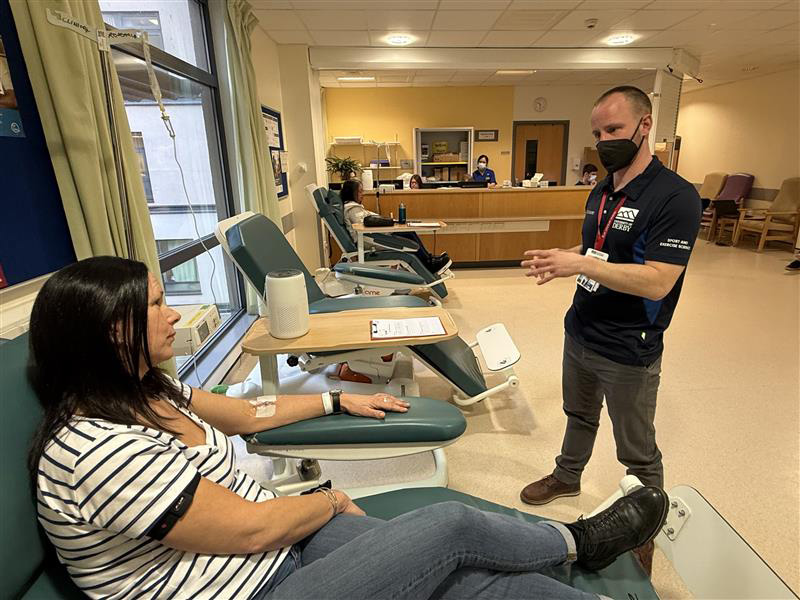Empowering Growth: Essential Tools for Personalised Workforce Upskilling

In today’s dynamic job market, personalised workforce upskilling is essential. Daniel Pell, UKI Country Manager at Workday, shares the importance of tracking successes with digital tools, nurturing skills, promoting a culture of continuous learning, and leveraging apprenticeship programs to achieve effective skill development, at all levels.
In today’s rapidly evolving job market, a one-size-fits-all approach to workforce development is no longer sufficient. To stay competitive and foster a motivated, resilient, high-performing workforce, organisations must adopt tailored strategies that cater to the unique needs and career aspirations of their employees.
Personalised workforce development encompasses many approaches, from targeted training and growth programmes focused on enhancing specific skills and knowledge, to mentorship, coaching, and regular performance management to provide constructive feedback to employees to help them understand their strengths and areas for development.
By leveraging strategies such as these, companies can help grow the bench of skills the workforce needs to solve tomorrow’s business challenges while aiding productivity, improving employee sentiment, and assisting retention. Companies with strong development programs can also be seen by external talent as innovative and a desirable place to work—contributing to reduced hiring costs and a competitive advantage in the talent landscape.
However, businesses often struggle with individualising their approach to development—whether from a lack of the right tools and initiatives, or misconceptions around the level of resource it requires. Here are some actionable tips that businesses can implement to build a positive and personalised approach to workforce development:
Invest in digital tools to understand your employees better
Investing in digital tools can be a game-changer for companies seeking to understand their employees better and open the door to enhanced development opportunities. That’s because to tailor workforce development to the needs of your team, you need insights into each individual’s current skills. Doing this at scale across a business used to be resource intensive (which is why, too often, it simply didn’t happen).
However, with new technology and the emergence of AI, it’s possible to access and analyse a rich set of data from around the business. This can provide clear direction on the skills and proficiencies across your employee base and help you to identify meaningful opportunities for growth.
Track employees’ success to unlock their full potential
If gathering and assessing those insights is step one, then step two is building them into a targeted development program. Everyone’s career path is different and it’s important to track successes along the way so that a tailored programme can be created to unlock workers’ full potential. Here, tools that build both lateral and vertical internal career paths—boosting both the business’ skill sets and individual careers—are key. This helps accommodate workers at any stage of their career journey and helps them to realise their full potential.
Nurture skills throughout the organisation
Companies should take a holistic approach to developing skills across different departments. That means creating opportunities for employees to work cross-functionally, or to take on secondments in other teams to expand their skill sets or even re-train.
The Workday Skills Cloud, an open and interconnected AI skills intelligence foundation, can play a critical role in fulfilling this ambition. Here at Workday, it enables us to both assess current skills and proficiencies and match individuals with opportunities to further develop across the business. That means people benefit from new pathways to development, while teams also get fresh perspectives and new insights—it’s a real win-win. What’s more, with AI crunching the data behind the scenes, HR teams can manage this process at scale without adding pressure to their workloads.
Embrace a culture of continuous learning
On-demand learning is another key element of a personalised approach to development. It’s not simply about providing access to a library of content, but also curating pathways and suggestions to each employee. This empowers them to easily drive learning on their own initiative, at a time that is most convenient for them. Given the rapid changes taking place in technology and reverberating through our workforces, building that culture of continuous learning—and implementing tools that enable it—is essential.
Apprenticeship programmes
Finally, apprenticeships should not be overlooked as a way to effectively develop relevant, in-demand skills while enabling individuals to change careers or return to the workforce. Recently, apprenticeships have been part of Workday’s own workforce development capability here in the UK. They offer a structured, hands-on learning experience that enables employees to learn and develop in a real-world setting, gaining the insights, practical skills and professional network to support them to succeed.
In fact, we’ve recently launched our Career Transition Programme into technical sales, which at its core is a degree apprenticeship. Through the programme, individuals will upskill through a full-time job in our London office while simultaneously working towards a fully funded B2B degree at Middlesex University. It’s a fantastic opportunity to gain both real-world experience and relevant, impactful qualifications.
Apprenticeships can be a great option due to their flexibility and allow companies to train employees in technical skills and provide development opportunities for existing staff through mentorship, coaching and performance management—to name just a few further benefits.
A route to better skills development
While every organisation and its employees will have unique skill requirements, building programs to meet those needs doesn’t have to be a heavy lift. Advances in technology mean analysing skill sets, matching them to opportunities, and then curating a personalised learning pathway has never been easier.
By embracing these tools, alongside broadening the paths into work or new careers through initiatives like apprenticeships, businesses can start building an approach to development that’s inclusive, targeted, and valuable to all.
Find out more and apply to be a part of Workday’s Career Transition Programme here.
By Daniel Pell, UKI Country Manager at Workday











Responses